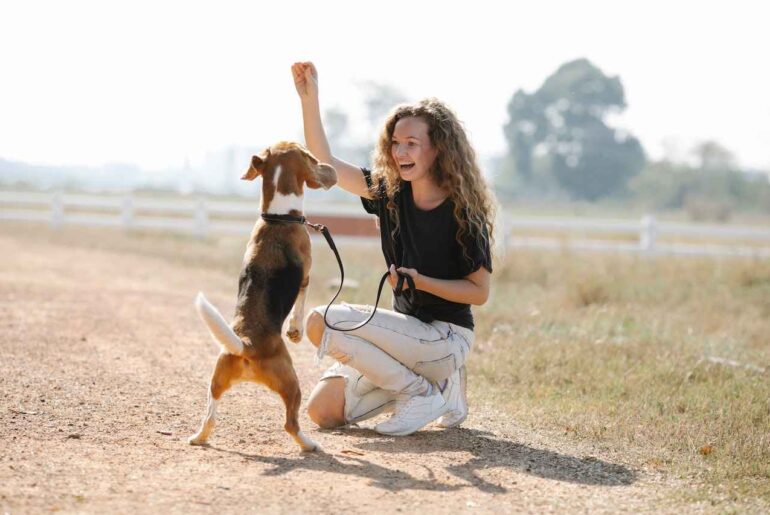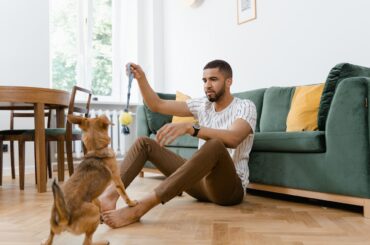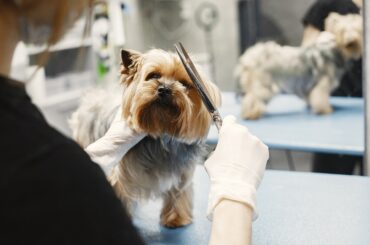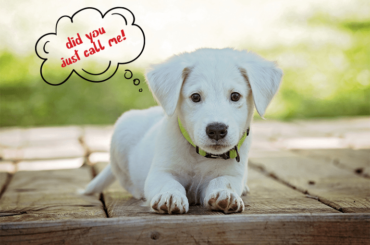It’s great to welcome a new furry friend home, and the early days are frequently spent cuddling and giggling as your pup learns about the surrounding environment. After the pup has adapted to its new home and family member, the next important stage is to teach and train it about the dos and don’ts and act on other basic commands.
It can often be confusing for first-time dog owners when and how should you start training their puppy. Here, in the article below we will try to clear your confusion about what’s the right age to start puppy training.
Like humans and other animals, puppies learn from their mom. Now that you are the pup’s parental figure, it is up to you to teach your pup things and ways so that it can grow into a well-mannered and social adult dog. Pups have a socialization and training window where they learn and grasp new things very quickly. Therefore, it is very crucial to choose the appropriate age to begin training to make daily life things easier and more convenient.
Many new and inexperienced owners are unaware of how advantageous it can be to begin teaching their puppy as soon as possible. Approximately eight weeks of age is when a puppy’s brain and cognition are capable of learning. Waiting until a puppy is sixteen weeks old to begin socializing and teaching them has a negative impact on how they grow and learn about their surroundings. A dog’s foundational behaviors and social skills are engraved throughout the first six months of life. Through training and enjoyable socialization, each day should be utilized to the fullest to strengthen relationships and create the finest connection between you and your pup.
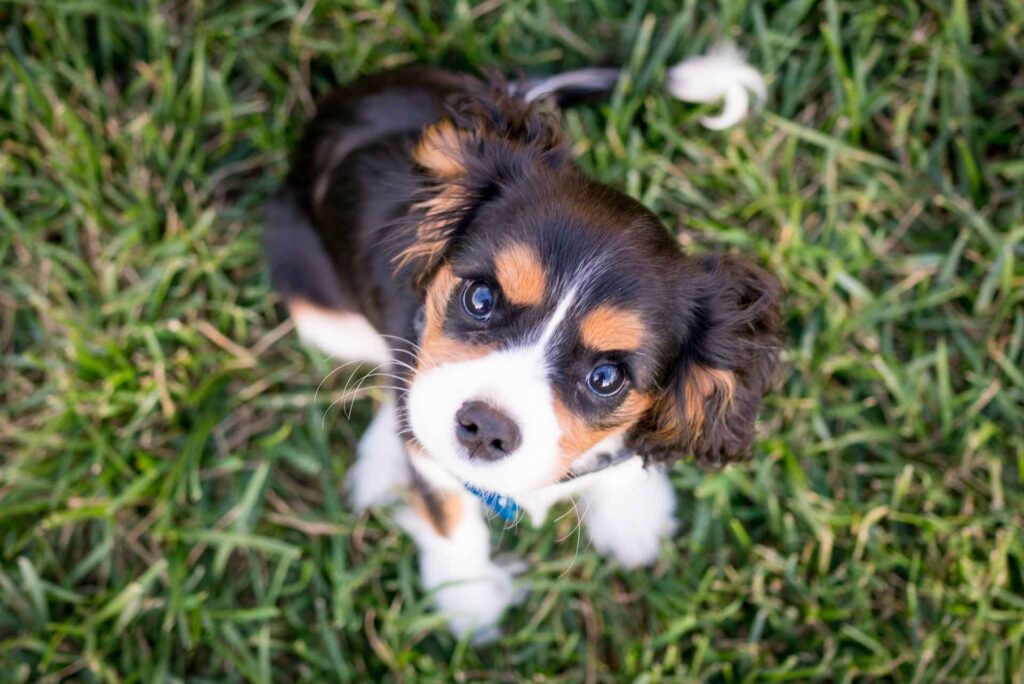
Ideally, the right age to start puppy training is when they are around 8 weeks old.
The ideal time to start a pup’s training is after the eighth week. Before this, pups have very short attention spans and don’t have their cognition developed to understand things that are meant to be taught. Starting too early may result in you being impatient with your pup and not being able to understand things. This impatience may hinder the quality of the time you spend and interact together.
Vets also suggest you not take your baby pup outside public places. This is because, at infant age, pups are more prone to ticks, mites, fleas, and other intestinal diseases as well. This may be transmitted by other infected dogs, birds, and wet and damp bushes. Therefore, it is highly recommended to first complete the initial dosage of all the required vaccinations as suggested by your vet if you want to take your pup outside to train or walk.
The first and foremost and most important part of the initial training is to make the pup recognize its name. The most effective way to do this is to call your pup’s name in a happy and bright tone whenever it looks at you. After this, basic obedience commands like “sit,” “stay”, “yes”, and “no” should be taught. This can be done by including bits of food into the training. Every time the pup acts according to the command, you can treat it as a reward. Including your dog’s food is incredibly helpful for guiding them away from actions you don’t want them to take, getting them to come to you, focusing on you to develop a relationship based on guidance, and rewarding them for positive behaviors to get them to repeat them.
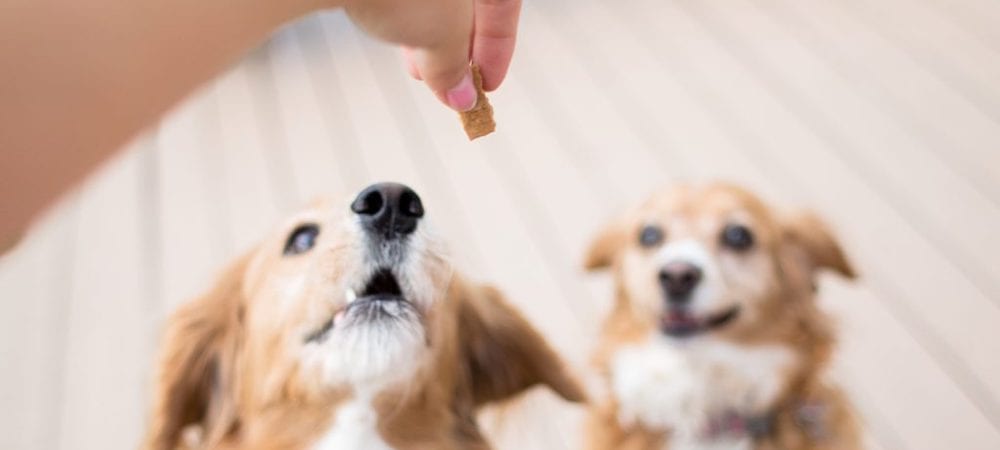
Positive reinforcement like treats encourage your puppy during training period.
Likewise, you can address your pup by saying “good dog” while you treat him and “bad dog” when he/she does something unwanted so that he/she can develop an understanding of what is good and what is bad.
At the age of 8 to 16 weeks, the pups are very playful and have a tendency to wander here and there because of their short attention span. Therefore, it is advisable to keep training sessions short, around 10-15 minutes in the beginning, but in a consistent manner. Being consistent not only means training your pup regularly but also means using the same commands, gestures, words, and signals every day.
Once basic training is over, you can start leash training, potty training, and crate training. These training sessions are more effective when applied after the age of 12 weeks. Leash training would train your pup to move around in a disciplined manner, potty training would help keep your home clean, and crate training would help your dog have a place to sleep and rest.
Many first-time owners and even experienced ones are unaware of the ideal time to start training their pups, i.e., 8 to 16 weeks of age. Some start too early when pups cannot grasp words and signals and get impatient and frustrated, whereas some start too late when pups have developed their own way and are hard to train.
Therefore, the owner should start training their pup at an ideal age in a simple and consistent manner. Celebrating small achievements and staying motivated will eventually result in a well-mannered and obedient adult dog.
